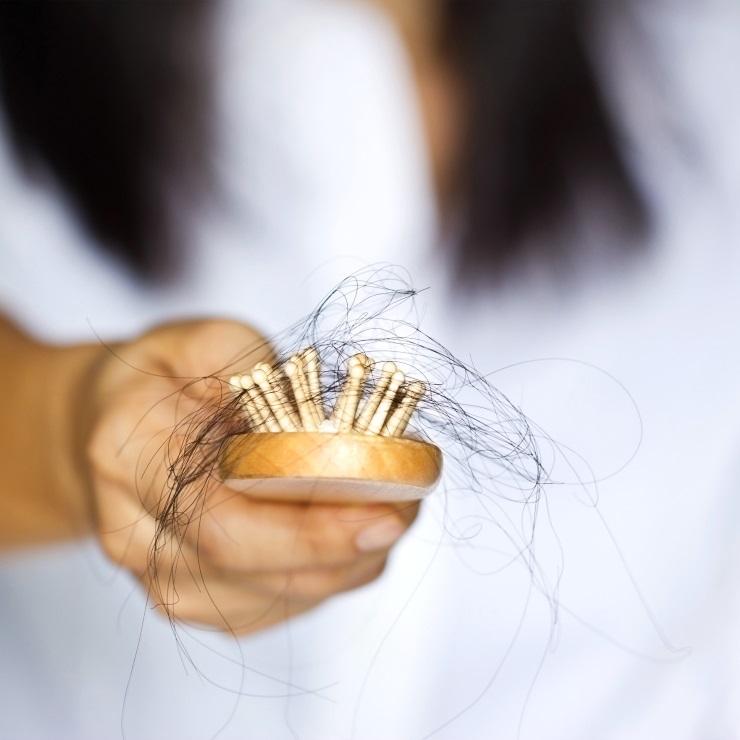by Joan Haynes, NMD
Hair loss in women is usually a symptom of an underlying health condition. It can be emotionally devastating to women. A thorough work up can reveal the contributing factors. Knowing the cause of the hair loss leads to an individualized treatment plan. Often women’s other nagging health problems improve with a whole body approach. Over my years of practice, it has been so satisfying to see women return to health and regrow their hair.
Here are the most important considerations when evaluating a woman’s hair loss:

- Anemia is low iron in the blood and is easy to tests to for with blood work. A complete blood count (CBC) and most importantly a serum ferritin which is your storage form of iron. A ferritin level below 90 is associated with hair loss. I routinely see values in the teens!
- Hormones play a big role in hair. Women may have deficiencies or excess of any hormone – testosterone, estrogen, or progesterone, DHEA, cortisol, or prolactin. Clues to a hormone cause are acne, hair growth on face, infertility, PCOS (Polycystic Ovarian Syndrome), irregular menses, menopause, PMS, and hormone use. Read more at Testing for Hormones Imbalances.
- Thyroid conditions often cause hair loss and many other symptoms. It is useful to be thorough when testing thyroid. Blood tests to consider for a full thyroid work up: TSH, free T3, free T4, reverse T3 and thyroid antibodies.
- Autoimmune conditions can be tested for such as an ANA which will test for multiple autoimmune conditions including systemic lupus erythematous.
- Stress is one of the most common causes of thinning hair and sometimes the hair loss happens even after the stress has passed.
- Scalp and skin conditions might be the problem if there is any itching, redness, bumps, or broken hairs. Exposure to chemicals and fragrances can cause skin reactions. A dermatologist can do a punch biopsy to test for things like psoriasis, seborrheic dermatitis, and look for infections.
- Family history could be a factor if female relatives with similar problems?
- Personal history is important to review. Any recent diet change, weight loss, surgeries, or illness? Is the hair loss sudden or a gradual loss? Losing more in certain spots or all over scalp? Any hair loss or growth on the rest of the body? Do you have any ongoing health issue and/or have other symptoms coincided with the hair loss? Are you taking any medications or supplements?
To understand more, WebMD has a great article: At Boise Natural Health Clinic, we can order the lab work that you need and many lab companies will bill your insurance.
